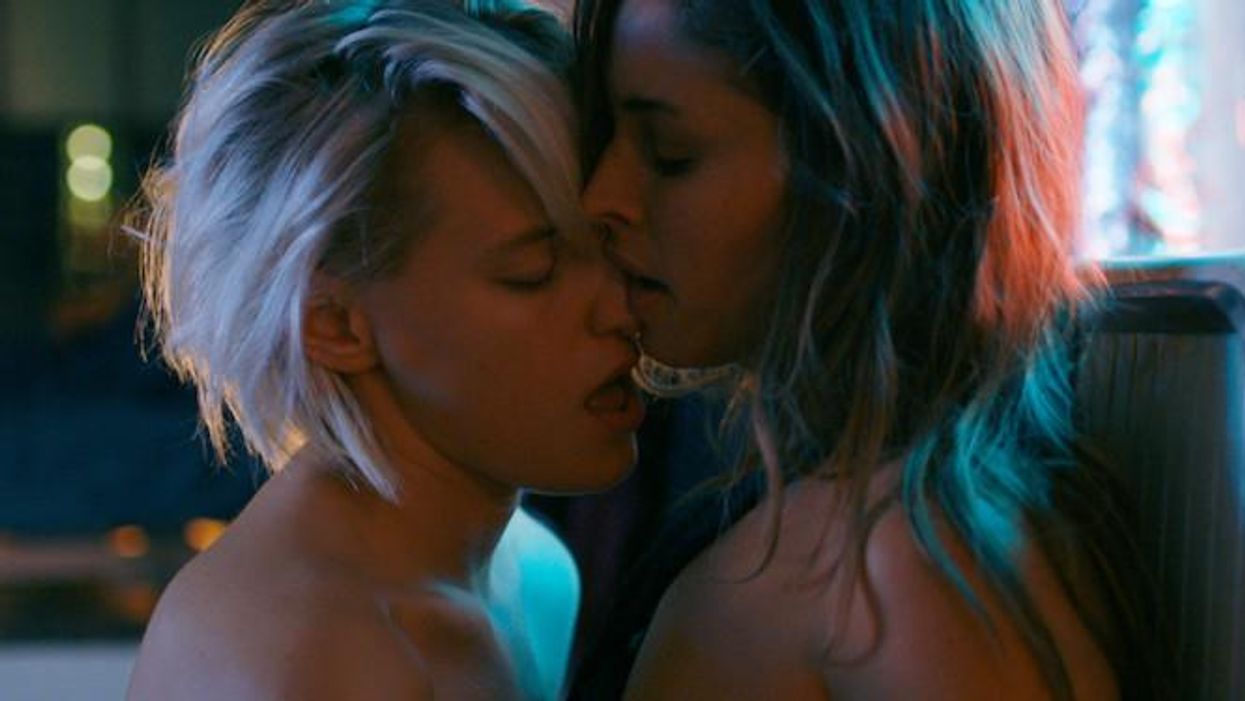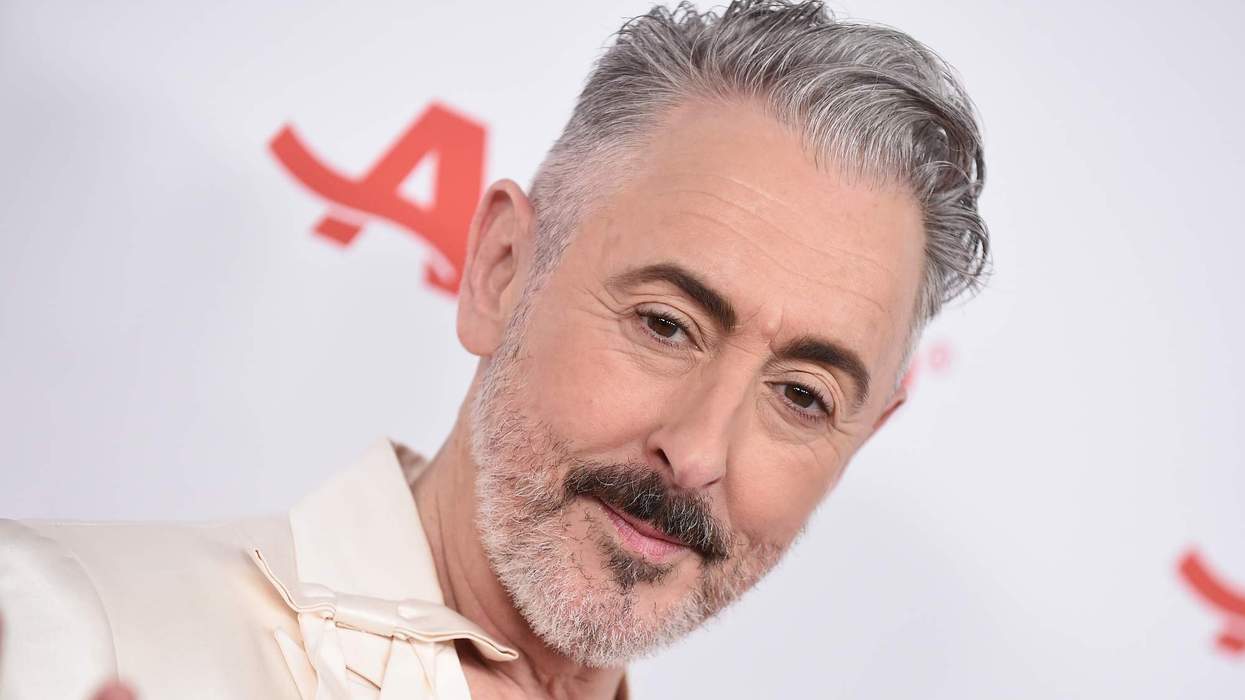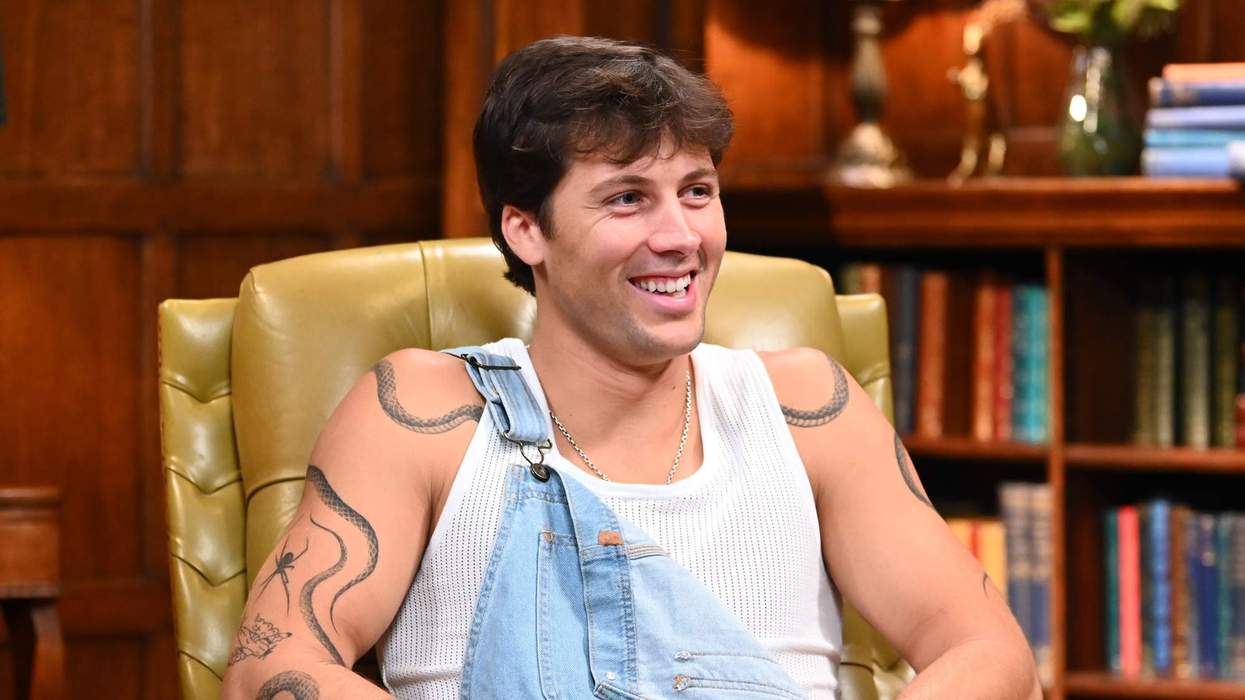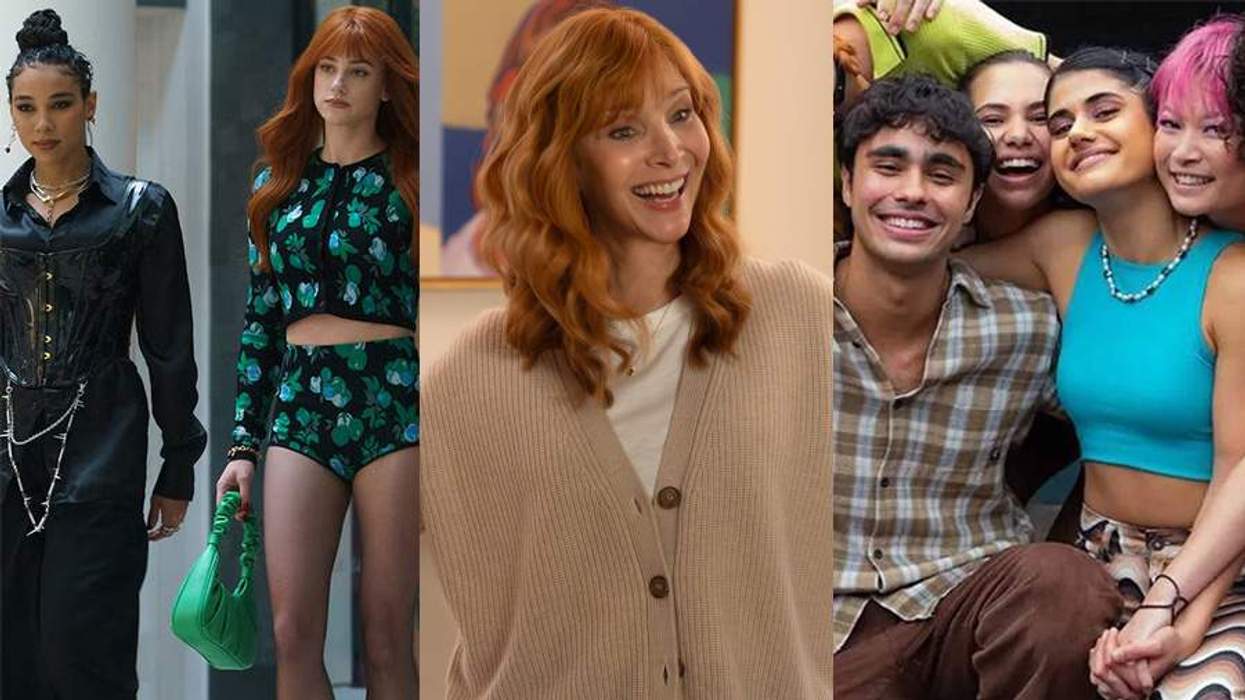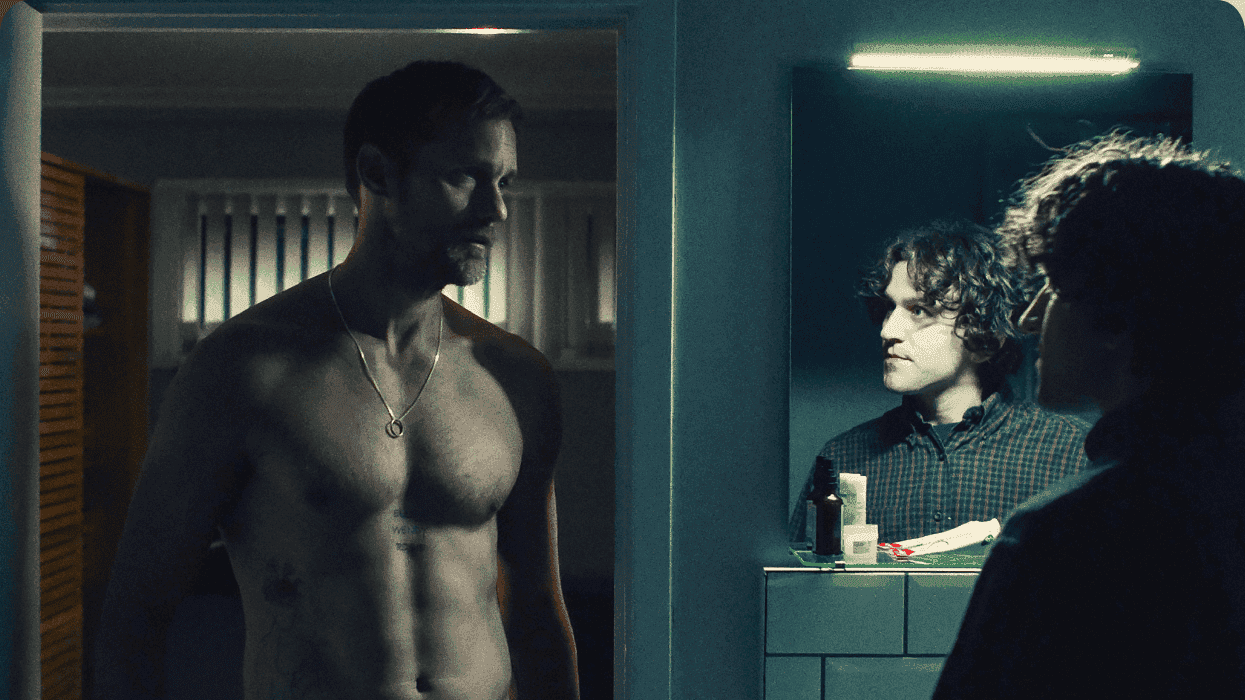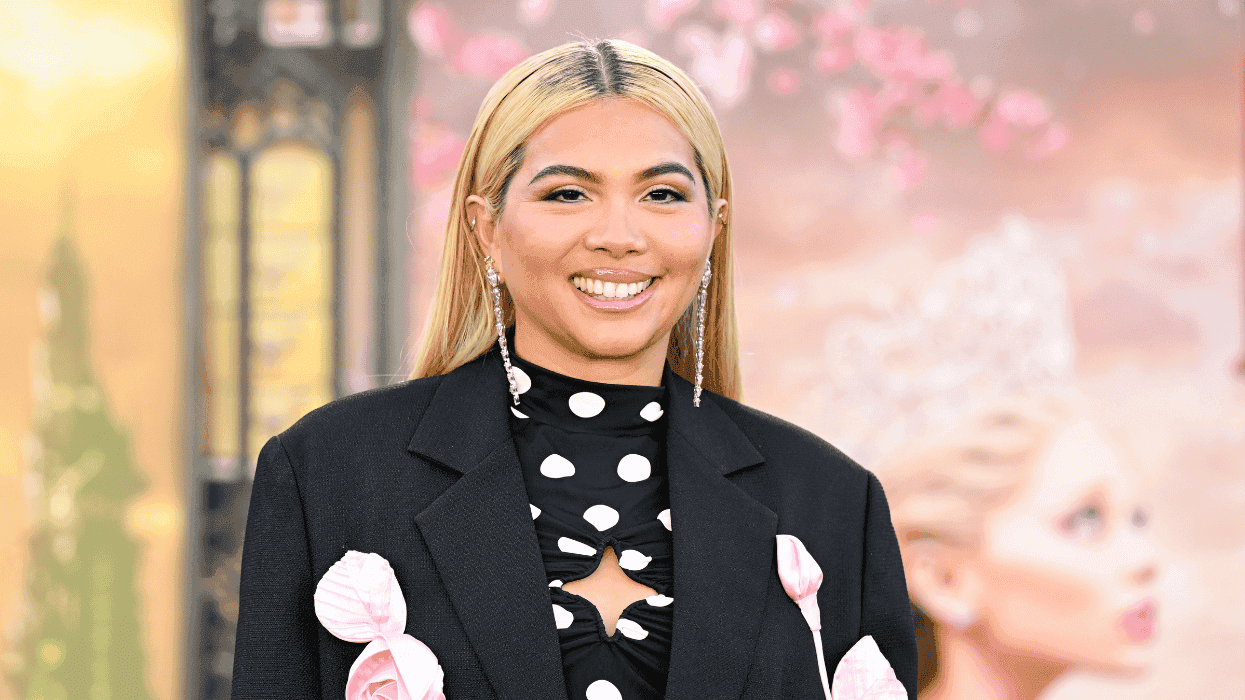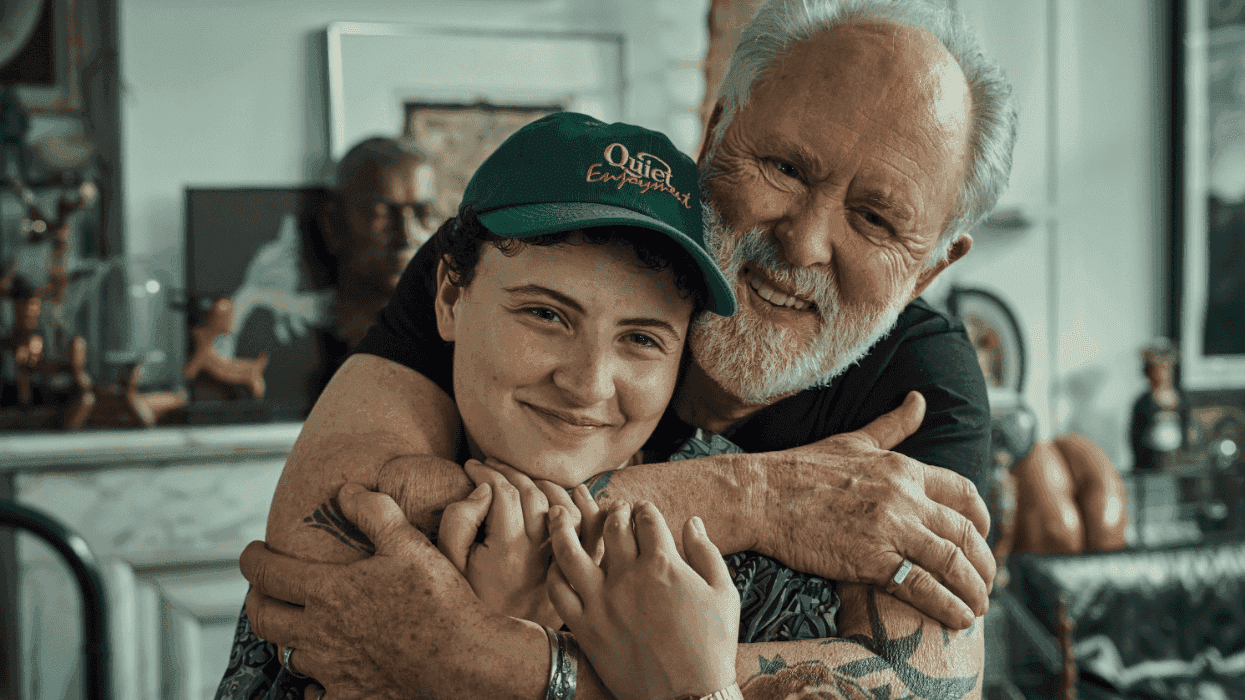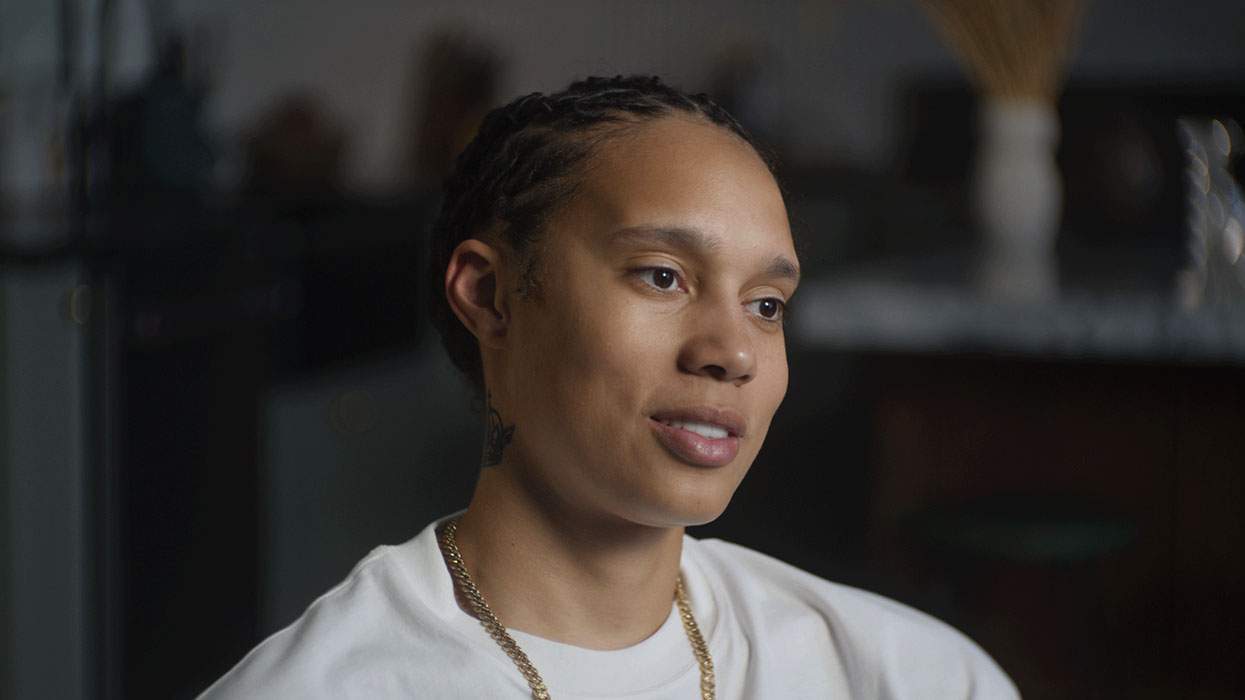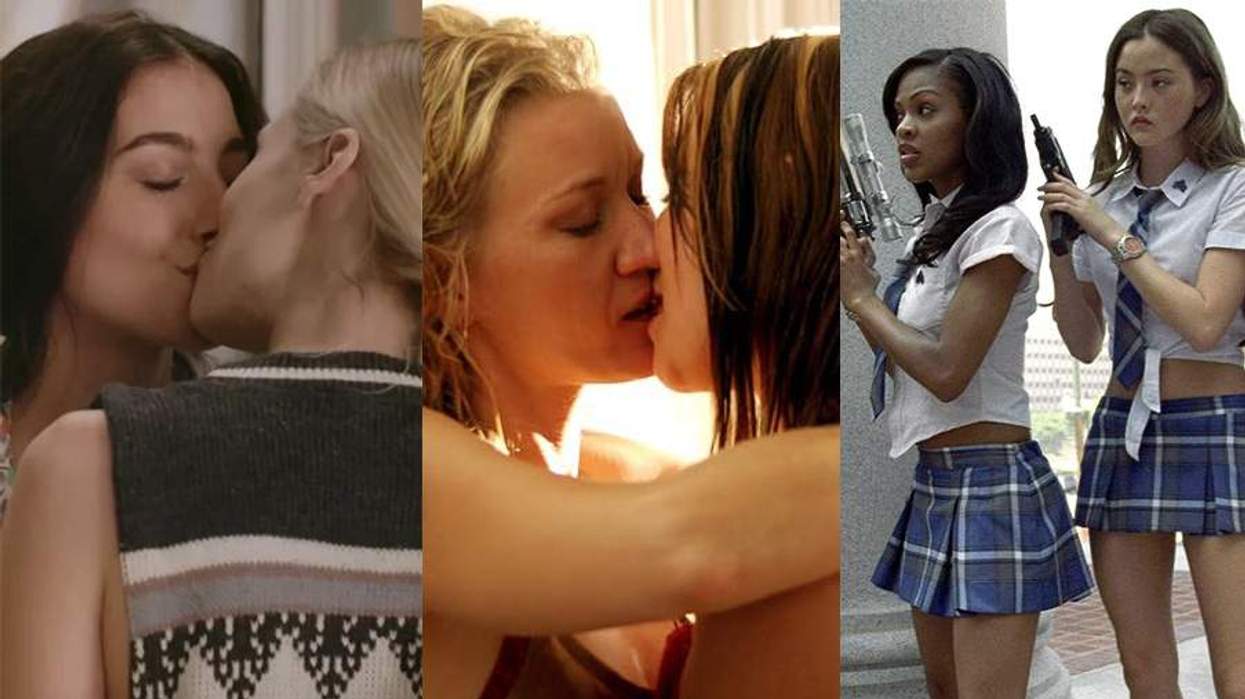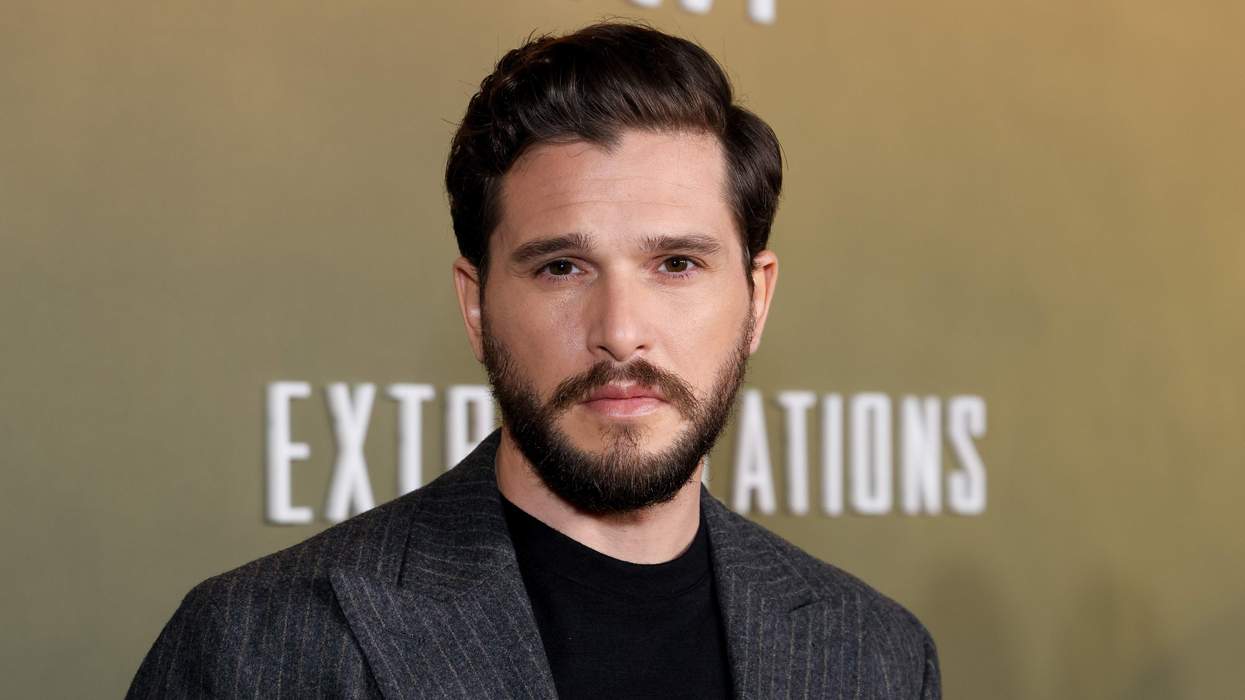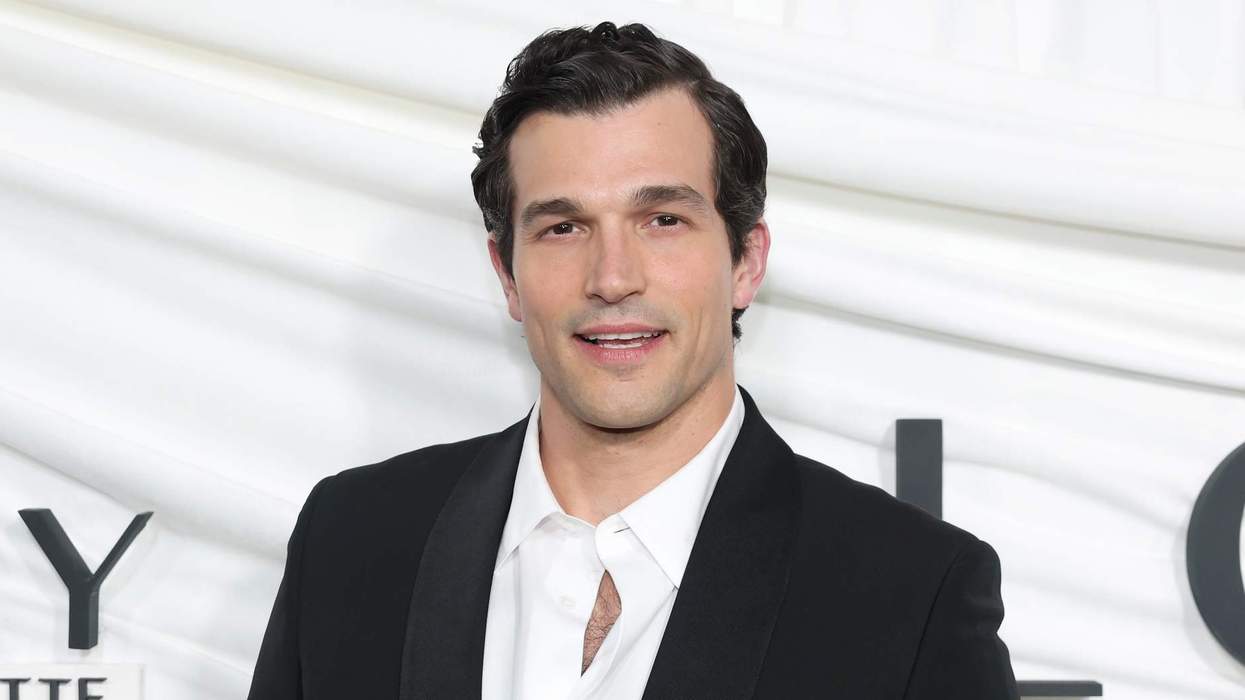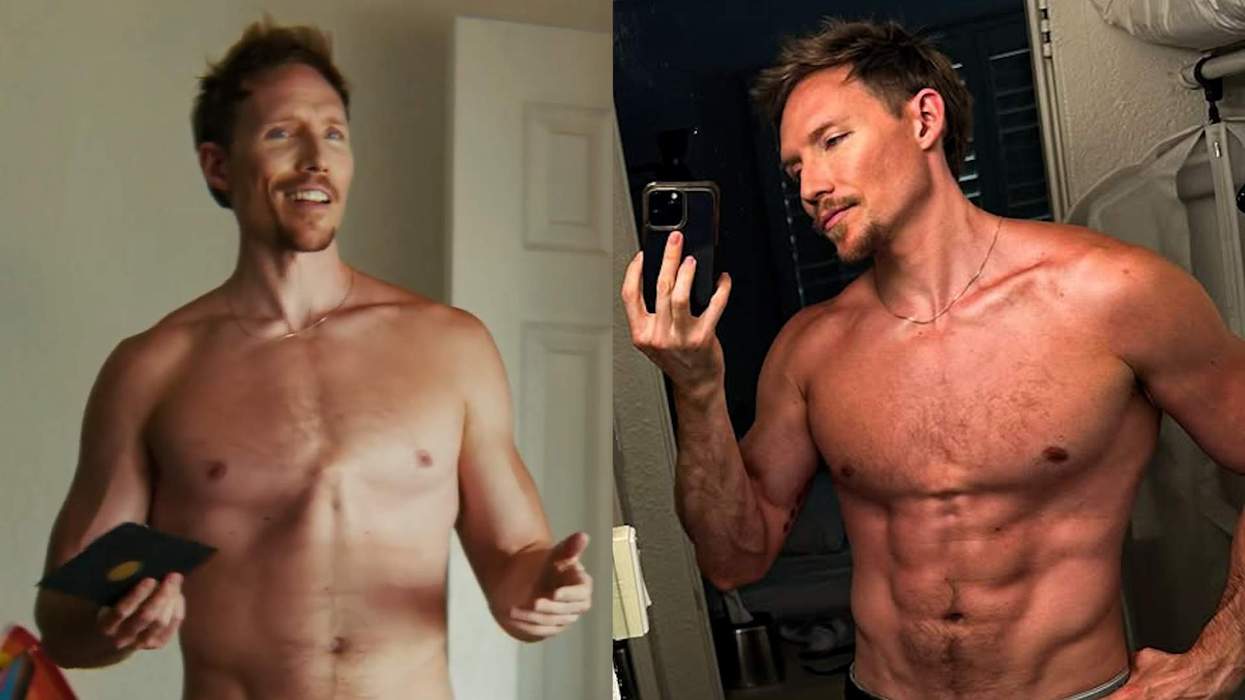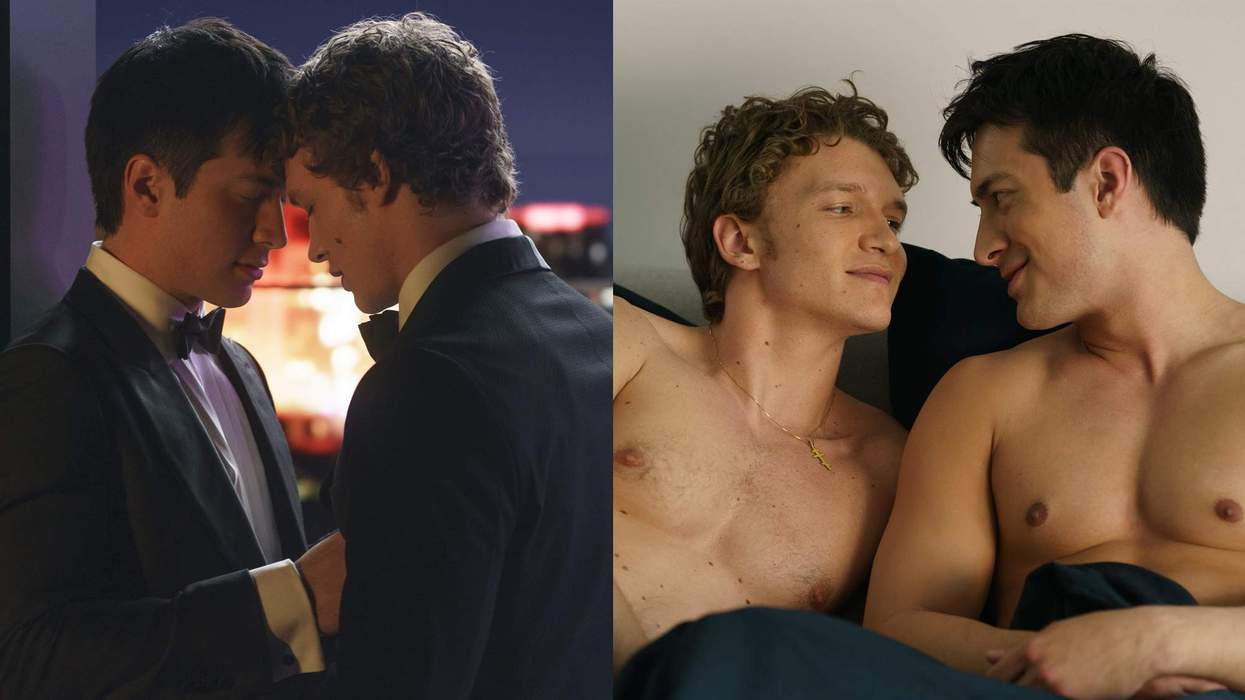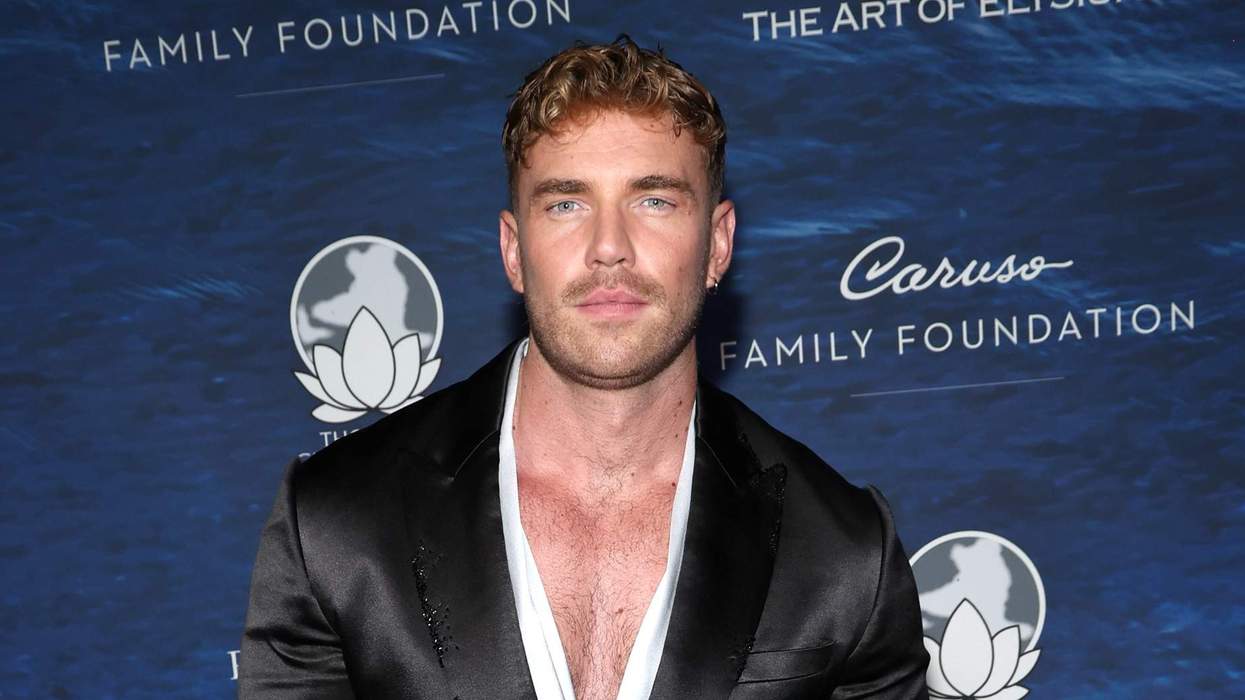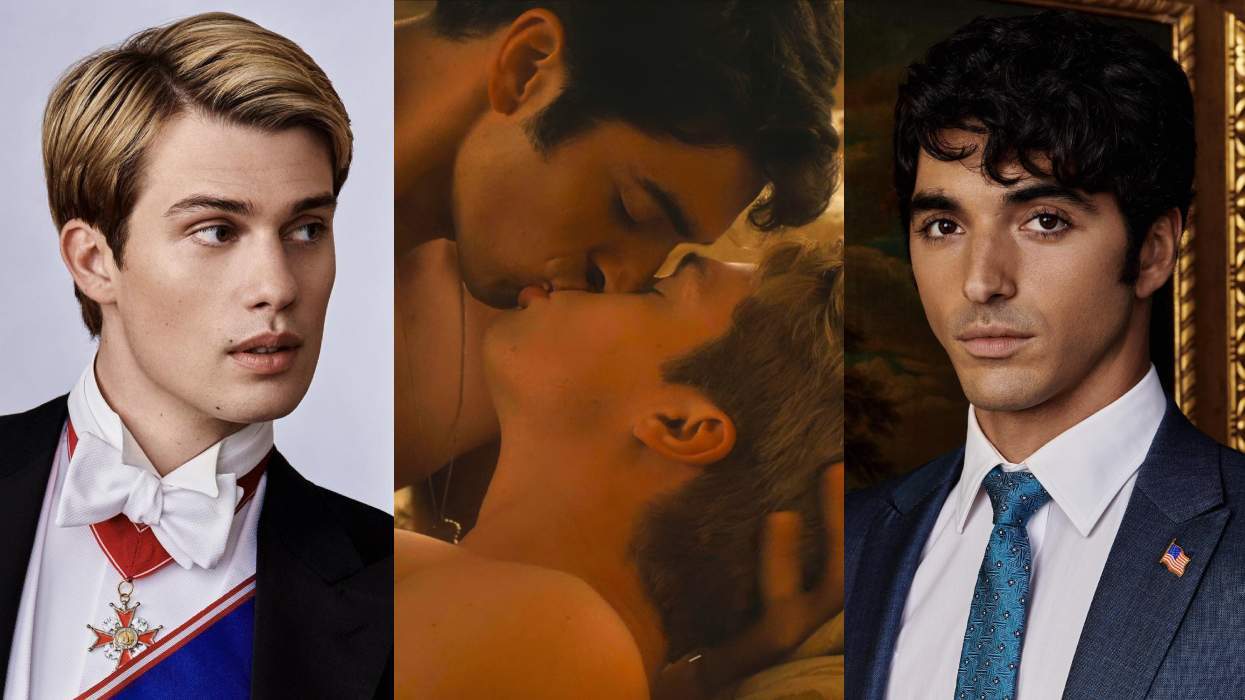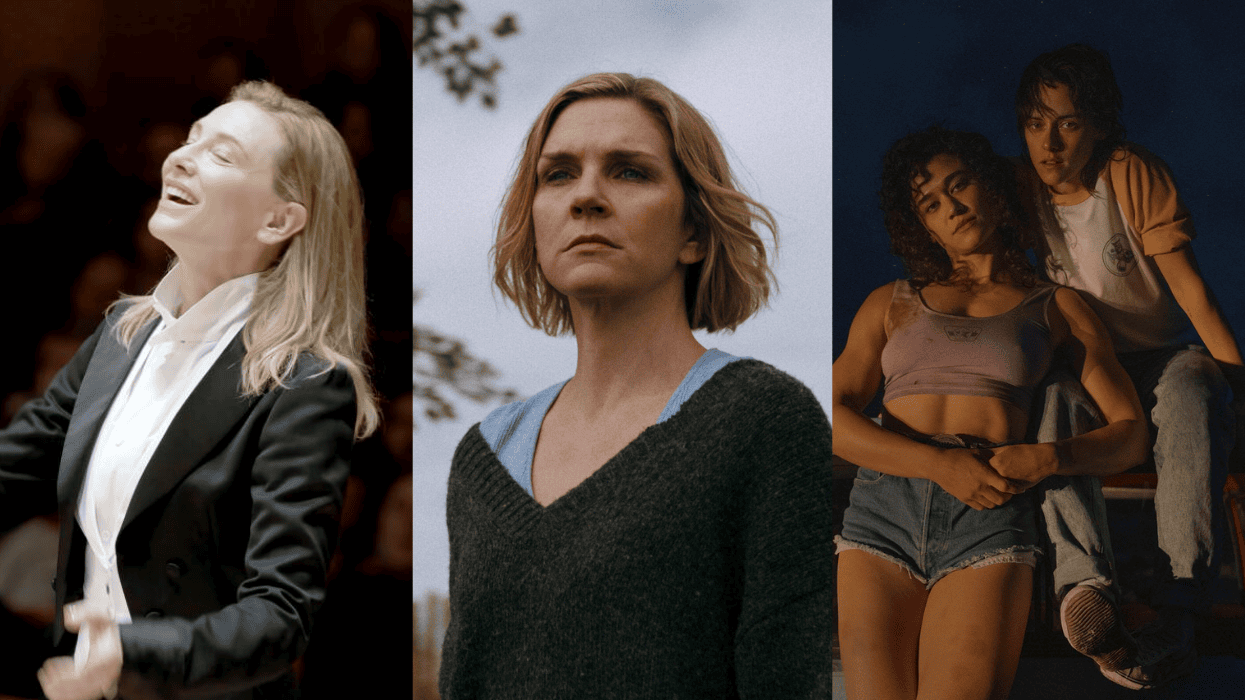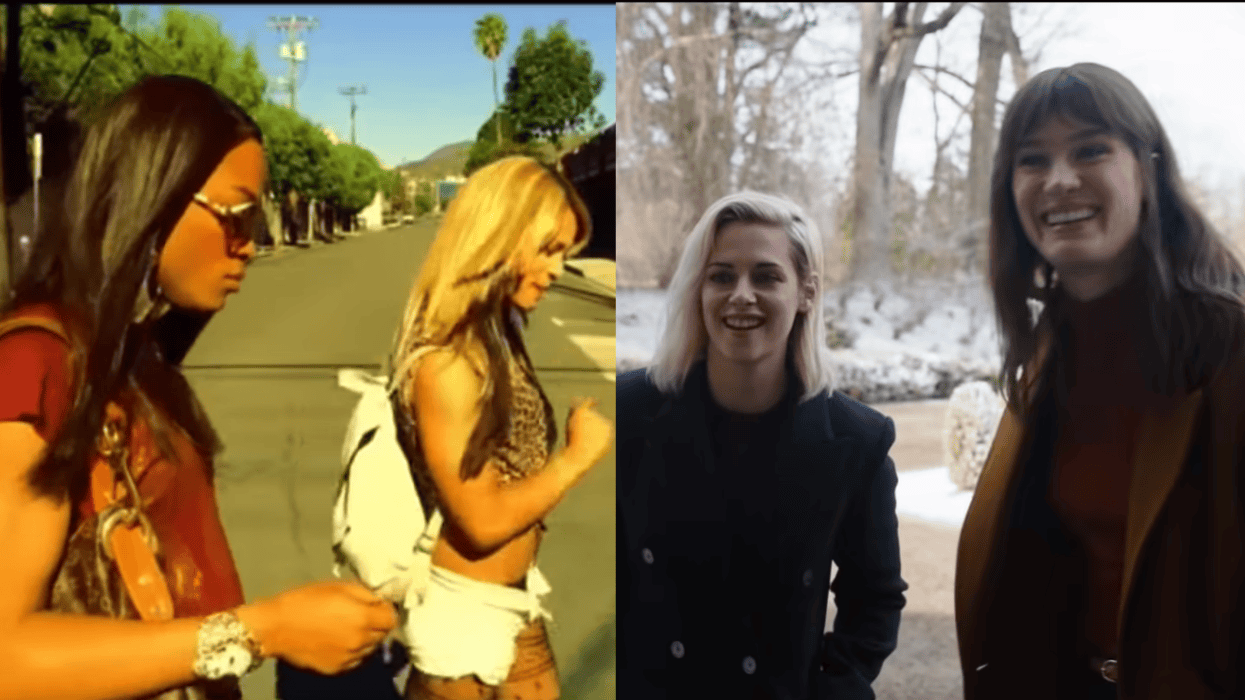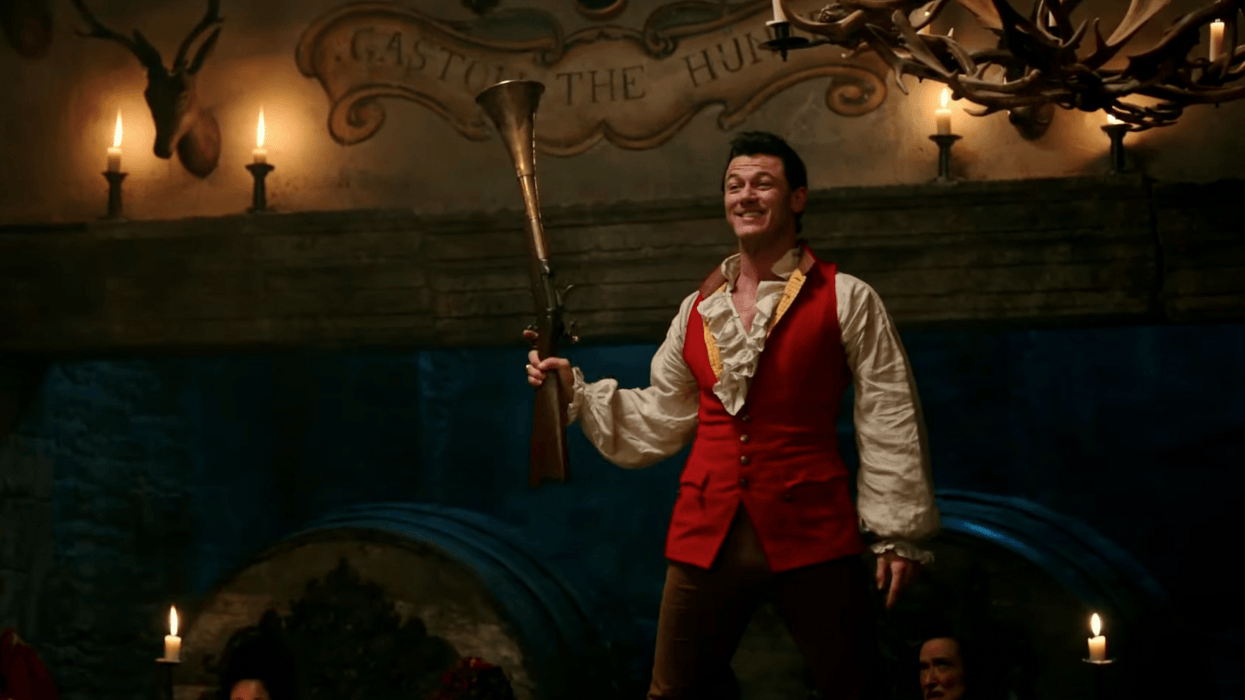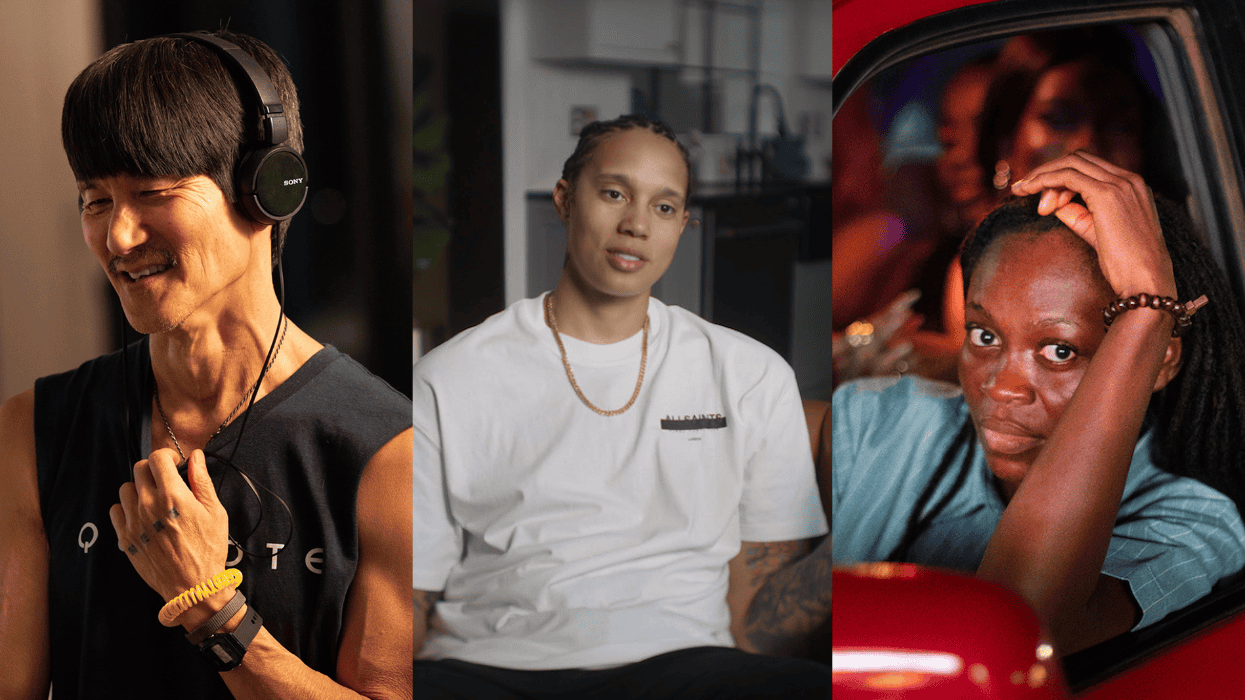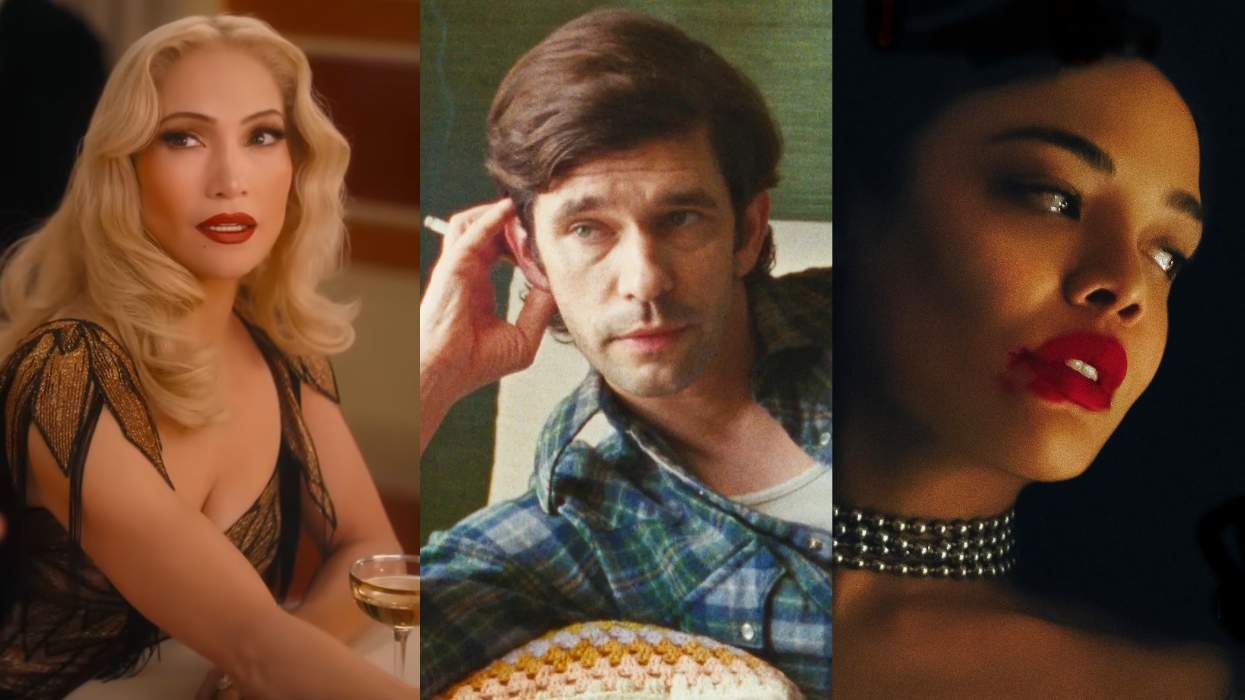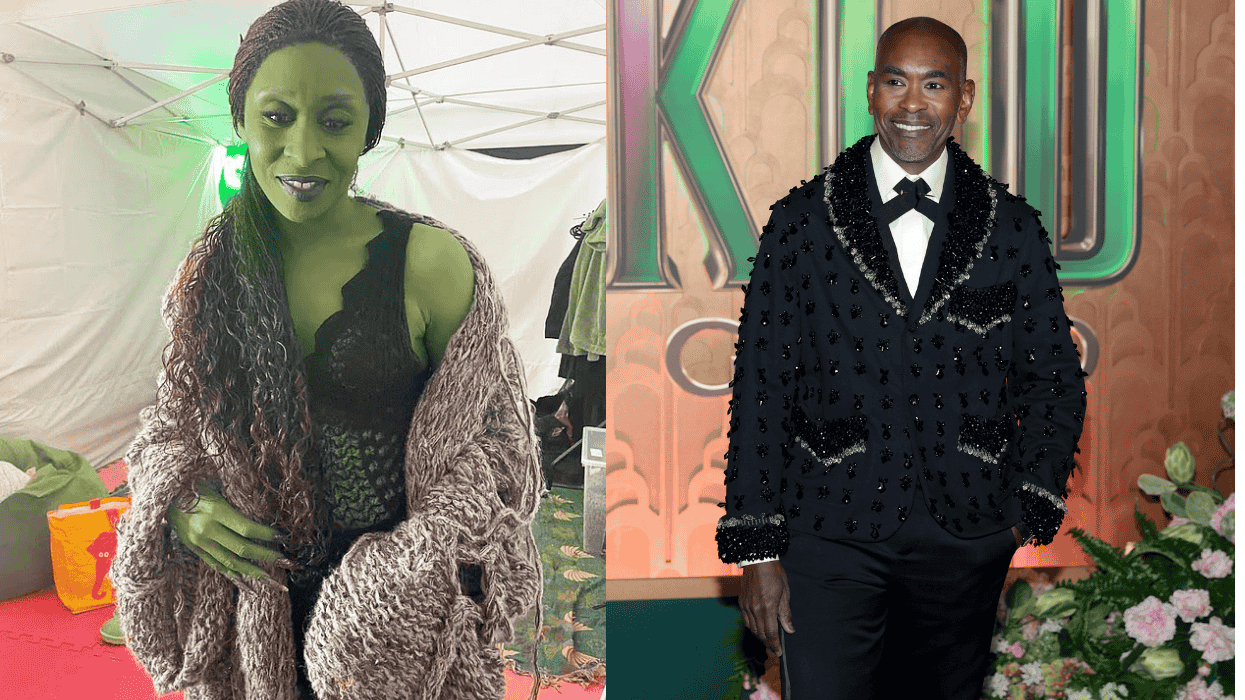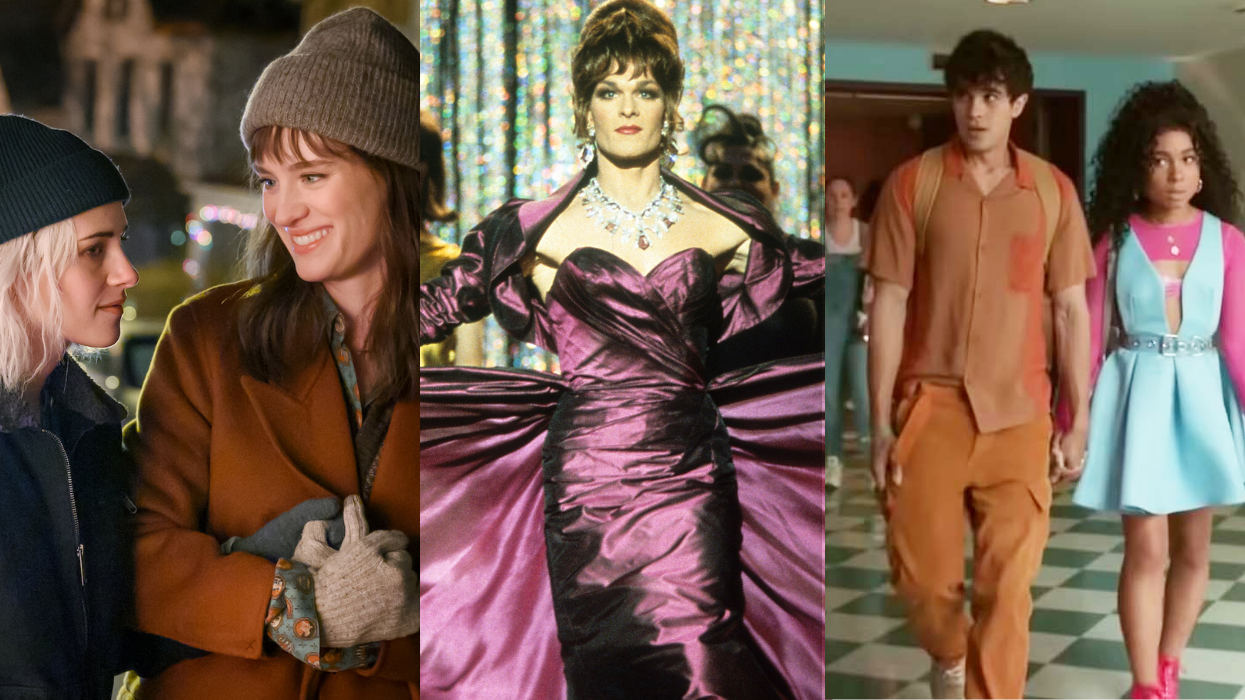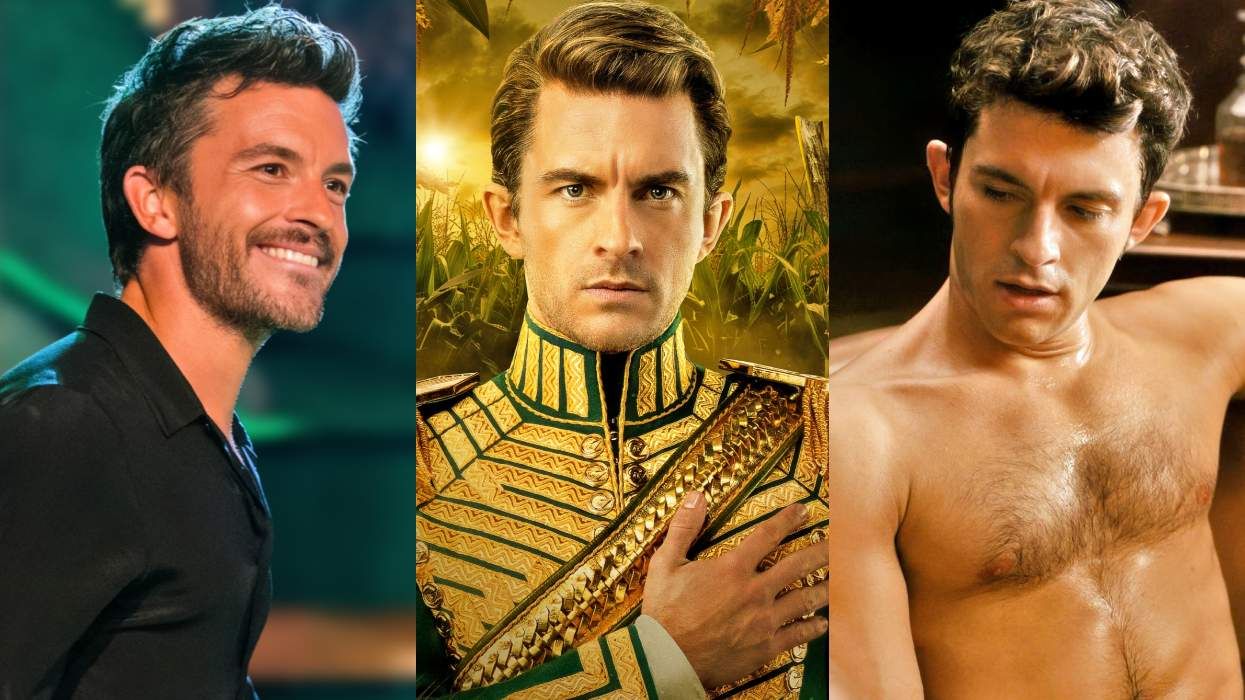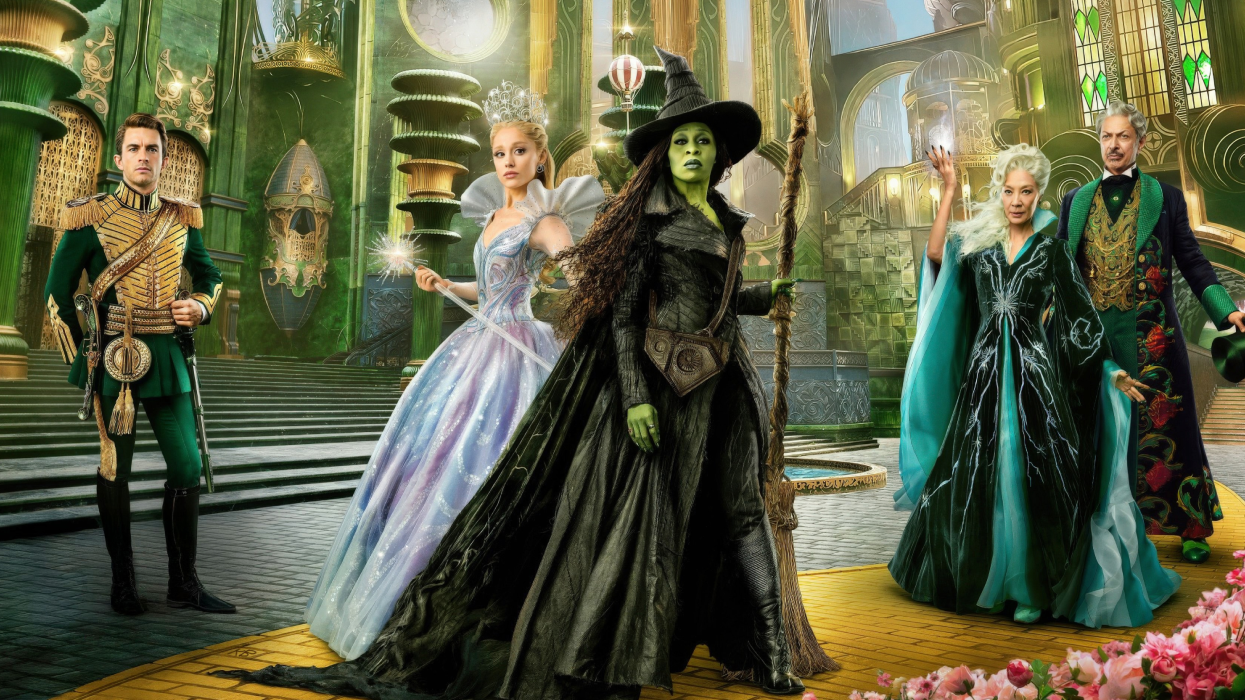New lesbian drama, Below Her Mouth, is a girl meets girl kind of story--nothing overwrought, but authentic in execution.
Jasmine, a successful fashion editor living with her fiance, meets Dallas, a roofer recently out of a relationship, sparking together a steamy narrative that serves up, not just sex, but a thoughtful look at lesbian relationships from the perspective of women.
Related | Watch the Steamy U.S. Trailer for New Lesbian Drama Below Her Mouth
OUT recently sat down with the film's director, April Mullen, as well as its two leads, Natalie Krill and Erika Linder, to unpack the process and profundity of Below Her Mouth.
OUT: How did you get involved with the project?
April Mullen: Melissa Coghlan, our producer, and Stephanie Fabrizi had been working on drafts of the script for two years developing the feature and then I came on after they saw a feature film I [directed], 88, and they loved the visual aesthetic to that. I read the script and really loved the idea of the challenge of trying to capture this lightning bolt chemistry with 90 minutes and a lot of silences that had to do with bodies connecting through a female gaze. All those things excited me and I had never done a film like that before. I'd done a lot of action and a thriller, but it was something exciting and challenging.
So much female sexuality, even in queer media, is directed toward the male gaze. How did you confront that while making Below Her Mouth?
April: I don't think we had to confront it so much as it came from a natural place because we were all very in touch with ourselves. It was an all female crew and the creators behind it, we're also women, so we rode that wave and made sure to constantly be true to that voice. Every key creative involved with the project knew that we we're all on this mission together and it felt like a team effort. There was a lot of support and love, so I didn't think we ever had to confront it, more so like... when I was short listing the sex scenes, I wanted to erase the influences I had in terms of media advertising, TV and films. You have to erase that and go to yourself and be vulnerable enough to be like, this is actually what is exciting to me, this is what's beautiful to me, this is what makes me want to be intimate with another person, let's expose those things.
Natalie Krill: It felt so relieving because I never felt like anything we did was pushed, it always felt so true to the connection we had in the moment with the script. I think that speaks to it being directed by a woman and written by a woman. It felt like a woman's perspective of what's sensual and sexual, and what turns her on in every aspect. I remember feeling so relieved that we didn't have to make it anything for anyone. It came out really truthfully.
Did having an all female crew differ from past projects?
Erika Linder: Working in fashion, even though you might think that it's such a feminine thing, it's still male dominated by photographers, producers, you name it. So for me, I definitely felt safe in a way. I've done shoots before, which have been pretty nude, where there's been men everywhere. I don't feel uncomfortable, but you never really feel protected. People just like walk her--people don't care and it's so fast. [With Below Her Mouth] people were concerned about how you're doing and it was completely different.
Thinking about safety, how did you prepare for the physical and emotional vulnerability of doing a film like this?
Natalie: I think that isolation was a big part of it. I can only speak for myself, but isolation and a lot of visualization--using my imagination in my own world. I think the crew and the team are what made it a safe space. We always felt really protected.
Erika: [Natalie] and I, we had respect for each other, I think that plays a huge part in it, too. Obviously, if you're doing it with someone that doesn't respect you, it's not gonna go anywhere.
Natalie: It's hard, it's draining and it's also emotionally taxing because you're really putting everything you have out there, so that's what was so nice about the respect we have for each other. I feel like we picked each other up at different points, like when I was feeling a bit down and I didn't know if I could go on then she would be there to be like...
Erika: "Stop whining!"
Natalie: [Laughs] Exactly.
It seems like there's a strong bond between you three. Do you think that filtered into the final product?
April: For sure, and when we were shooting those intimate scenes, we gave them a lot more time, too. We were very very cautious in having them be allowed to have a lot more space during that. It wasn't like a regular shoot where you're rushing through things. The intimacy scenes, we would give a full 8 hours and would talk about it a lot before, discuss the blocking, and then it was only the two of them, myself and the operator. We never had a boom operator in the scene, we hid the mics so that there wouldn't be anybody looming over us and even the focus puller was behind a curtain, so it was just the four of us.
Erika: It was so easy to zone out in those moments. I rarely remember you guys even being there until, like, your foot got stuck in the bed.
April: Oh, you remember that? I untied her shoelace and took her shoe off for her but we never cut.
Erika: Everytime I think about shooting the scenes, I never remember where you guys were. I was just so focused on Natalie until I hear, "My foot's stuck," and I'm like, "Who's in our bed?"
Natalie: I must have been on another planet because I don't remember that.
April: That's the way it should have been. We were trying to be real sly. I untied her shoelace and flipped her shoe off. We didn't want to cut because you don't want to do more than one or two takes ever of that kind of material. We also did a really great thing with this film, which was shooting the whole thing in sequence. Normally on a shoot, you're shooting the beginning and the end all mixed up.
Erika: That really helped me because I had never taken an acting class before, so for me it was like I grew with the character.
April: With their intimate scenes, the first time they kissed was the first time they actually kissed. They discovered their bodies, the sex was of actual true discovery and it built from there. Then the last scene was the second to last day before we ended the shoot, so there was this intense journey we had been on and this emotional closure and longing and yearning.
Because there are so few representations of lesbian sexuality in the media, did you feel pressure to uphold a "good" queer image?
Erika: I think that came into my mind after we shot it, because when you're doing it, you're so focused on the character and the connection and to create something. But after you keep thinking, I'm Erika again, [and] that's when the pressure comes.
Natalie: I never thought about--obviously it's an important film for the community--but I think because of the character I play, I was always thinking about women who aren't in the community seeing it that maybe are hiding something like that. One of my really good friends after she saw it, she was weeping and was like, "It just makes me think about my life and the choices I made and what would be different if I was raised differently or allowed to think that I wasn't just meant to be with a man." That, for me, means a lot, because I think that's a common story.
April: I'm a very reserved person, although still sexual, I would never say the word, "sex." I was very shy or quiet about that, but I love the idea of feeling free and allowing the female orgasm to be something that's known--it's not this secret and there's no shame around sexuality, masturbation and women having an orgasm. That's not in film, that's not in TV. Nobody knows what happens because there's no visual depiction of what goes on. I think that women seeing the film have this sense of newfound expression and freedom, and own their sexuality more. I think that women in general just feeling liberated at the fact that an orgasm is awesome and that it happens--that it's to be celebrated rather than to be ashamed of. That was a really big thing that came out of the film that I might not have understood before shooting it.
Natalie: Sexual expression, not just getting off, you know?
Do you think there is a target audience for this film?
April: I find the people that are responding to it most are these young spirited, 16 to 30 year olds who want to break down barriers and stop labeling people and genders, and they don't find themselves depicted on screen enough or they don't see something that's not stereotypical. Those people, they'll be the content creators [of] the next generation and I feel like a lot more barriers are gonna be broken. I think they're really excited to see a film like this on screen that's just a love story--it's a plain beautiful love story, and I think they find that refreshing that they don't have to be told, "This is what happens if you choose this lifestyle," or, "This is what happens when you're living in these boxes."


